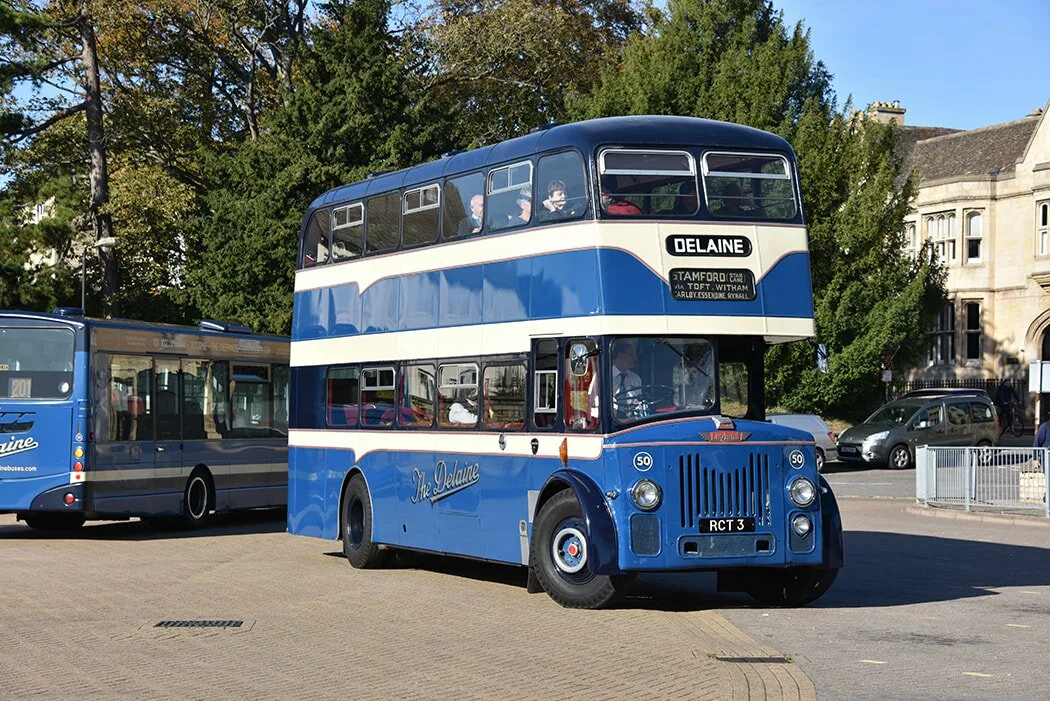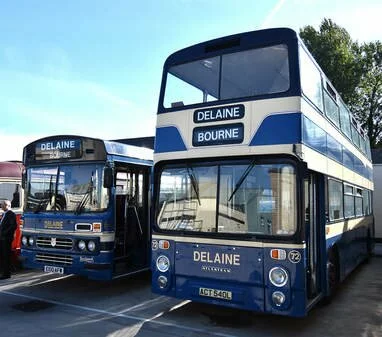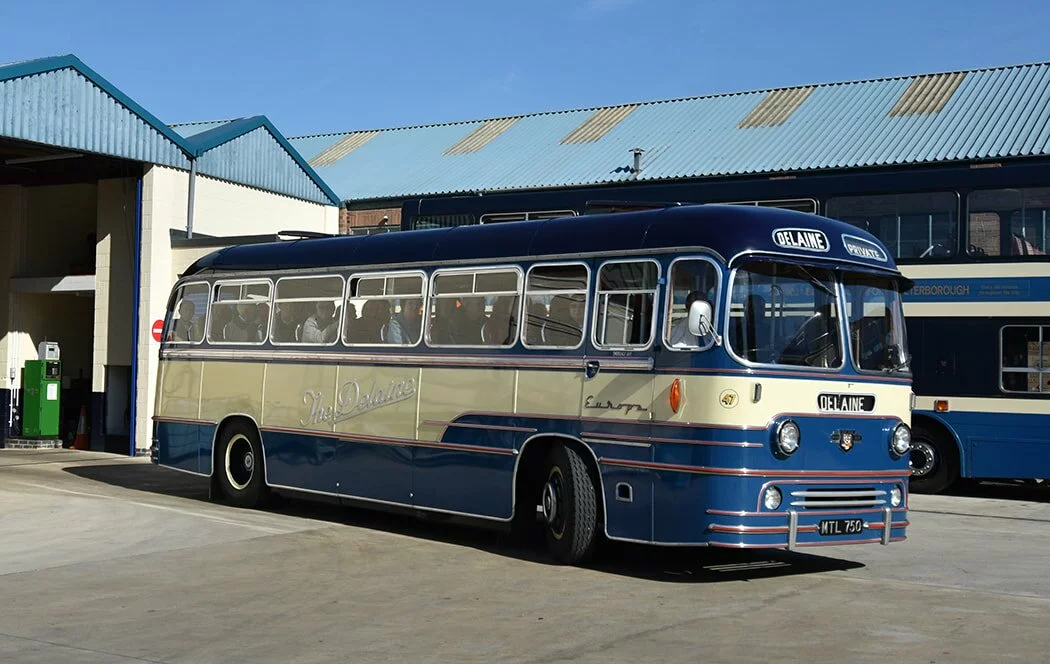- Home Page
- Fleet News Ramblings
- SKM News Views & Blog
- Behind The Picture
- Contact us
Heritage buses deserve to be used and enjoyed3/10/2018 
For as many years as I can recall bus companies around the country have retained vehicles of historic significance in their fleet. The majority of these buses saw use on a regular basis and were maintained in excellent condition.
Then there were the vehicles that were in regular service but regarded as ‘show condition’ vehicles by depots. A knock-on benefit of depot ‘show condition’ vehicles is that a number were bought by company staff when they were retired from service and still exist in preservation. Throughout the 1980s, 1990s, 2000s and the first part of the 2010s there was a real willingness on the part of bus companies to use their heritage buses in normal service. In many instances this small act allowed the companies to interact with the local community. But with the move to low floor vehicles there has been a real reluctance to use ‘heritage’ buses either in normal service on a limited number of occasions a year or on special running days. What we are ending up with is vehicle of historic significant that are effectively ‘stuffed and mounted’. One operator which supports running days is family-owned, Lincolnshire-based Delaine Buses. Here to protect the heritage of the business the Directors formed the Delaine Heritage Trust which looks after five-owned buses and has just taken on the custodianship of a sixth as part on a three year loan. A purpose-built facility houses the buses along with artefacts and publications. This year marked the 25th anniversary of the first Delaine Running Day and the full opening of the Delaine Heritage Trust Museum is planned for the Spring of next year. Anthony Delaine-Smith, Chairman of the Delaine Heritage Trust, told Steven Knight Media that his preference “has always been to see the Trust’s vehicles doing what they were intended to do which gives enthusiasts and the wider public the opportunity to ride on and savour the experience of the public transport of yesteryear”. The latest Delaine running day took place on September 29thand celebrated the 90thanniversary of coachbuilder Yeates of Loughborough. Delaine retains one of only two Yeates-bodied double decks built. A half-hourly service using the heritage fleet operated between Bourne and Stamford throughout the day with other Yeates-bodied coaches being used on a free tour from the Bourne depot to Rippingdale. At the event Anthony Delaine-Smith announced that Yeates Europa-bodied Leyland Tiger Club MTL750 (Delaine 47) had joined the Delaine Heritage Trust collection on a three year loan from the Leicester Arts & Museum Service. The five vehicles owned by the Delaine Heritage Trust are: 45 KTL780 Leyland PD2/Willowbrook 50 RCT3 Leyland PD3/Yeates 72 ACT540L Leyland Atlantean/Northern Counties 100 E100AFW Leyland Tiger/Duple 116 M1OCT Volvo Olympian/East Lancs Whatever happened to the correct allocation of bus types to routes3/10/2018
As far back as I can recall most bus companies allocated specific vehicle types to routes, either based on their type, or at least on their capacity (minibus/single deck/double deck).
This system of vehicle allocation requires discipline on the part of the vehicle allocation staff at the depot. This is a job that can be made more complex where vehicles carry route branding - but with the right mindset even extensive route branding can be made to work – TrentBarton, Nottingham, Reading Go North East are some examples of companies that can manage allocation of branded buses to routes well. I have spent a considerable time travelling around by bus and also observing operations this year. In certain areas of the country I get the impression that controllers and vehicle allocation staff have ‘thrown in the towel’. Branded buses on the wrong route and frequently single decks are being allocated to double deck routes with the resultant heavy loadings and overcrowding whilst the double decks appear on routes where they carry fresh air around for much of the day. Then there are routes for which a business case must have been made for investment in new buses but those new buses are used elsewhere. I accept that in order to provide a service the allocation staff may take the view that ‘a bus is a bus’ but if a route is allocated double decks then that must be for a reason. |
Steven KnightSteven Knight is a Transport Specialist who has over 40 years experience in the bus and rail industries as well as in specialist transport journalism. He is a member of the Chartered Institute of Journalists. ArchivesJanuary 2021 |
 Create your own unique website with customizable templates.
Create your own unique website with customizable templates.
- Home Page
- Fleet News Ramblings
- SKM News Views & Blog
- Behind The Picture
- Contact us


